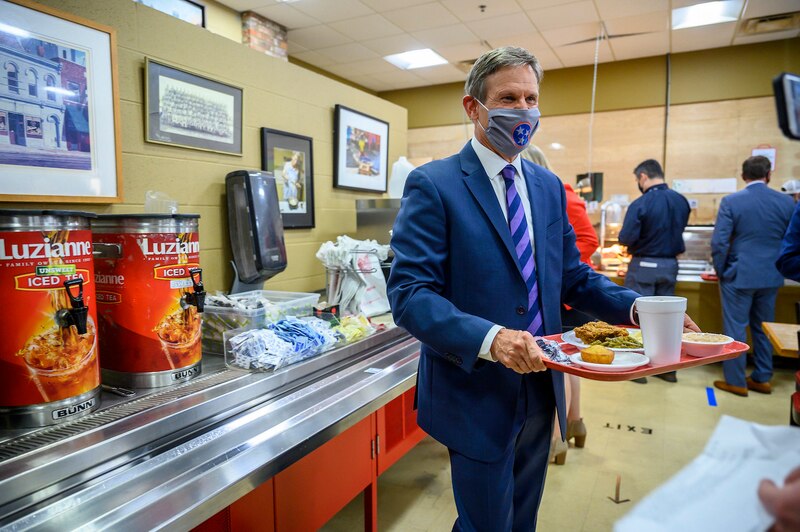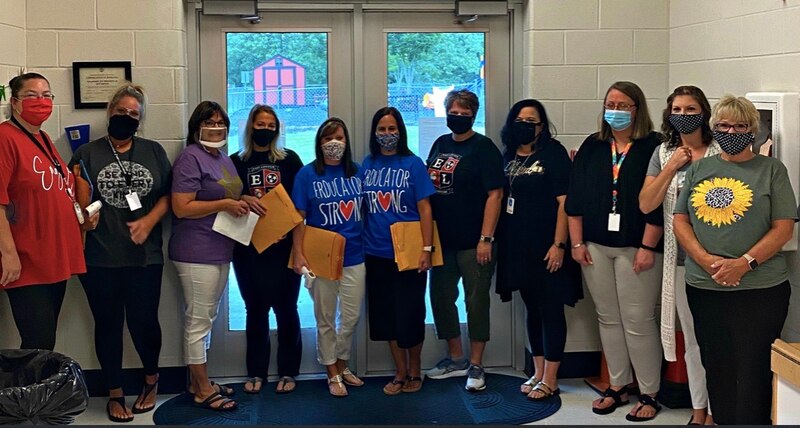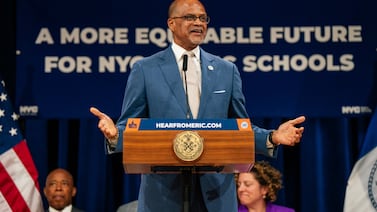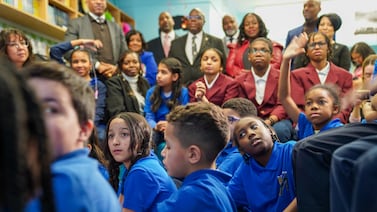Amid a low local infection rate and starting with small clusters of students, Alcoa Middle School last week became one of the nation’s first schools to reopen its campus to students during the pandemic. Within two days, a teacher with the sniffles tested positive for COVID-19.
The school, just south of Knoxville, Tennessee, didn’t shutter its building, however, as certainly would have happened last spring when the coronavirus began to spread across America. Instead, school officials quickly notified students and staff who came in contact with the infected teacher and directed them either to quarantine for 14 days or provide medical documentation showing they can safely return. The school got a thorough cleaning, and classes resumed the next school day.
Welcome to what could be the new normal of education in the age of the coronavirus.
Tennessee is one of the first states to begin a brick-and-mortar reopening of its schools, even as it passed the grim milestone this week of more than 1,000 COVID deaths in five months. Both distinctions have educators and parents on edge and asking whether it’s even possible to reopen school buildings safely when the highly contagious respiratory virus isn’t yet under control. Other states are watching to see what happens.
Gov. Bill Lee has led the drive to resume school in person, echoing the position of President Donald Trump. On Tuesday, Lee again urged leaders and parents to bring students back into the classroom — and not to delay the academic year, which for most of the state’s 147 districts kicks off in early August.
“In-person learning is the medically sound, preferred option,” he said as his administration released another round of guidance aimed at making the shutdown of school buildings an action of last resort.
Ultimately, it’s up to local school officials to decide when and how to reopen schools, and the state’s two largest districts have opted to start virtually only in Memphis and Nashville. But the governor has used his bully pulpit to make his preferences clear. During this week’s hour-long press conference, Lee said the risks of keeping classrooms shuttered far outweigh risks associated with the virus for children who are hungry, abused, or emotionally traumatized, as well as students with disabilities who face inherent barriers to virtual instruction.
“We’re doing everything we can to create a safe environment,” said the Republican governor, who promised to “follow the data” to make school decisions and called Tennessee’s reopening part of a “nationwide experiment.”
Even Lee’s fans bristled at the inference that Tennessee school children may serve as guinea pigs for reopening school buildings during the pandemic. His critics, meanwhile, blamed him for not taking bolder steps, such as issuing a statewide mandate to wear masks, to suppress the virus as active cases continue to rise. That’s put educators, students, and parents in a tough spot, they say.
“There is nothing about this approach that’s data-driven,” said Sen. Jeff Yarbro, a Nashville Democrat and minority leader in the state Senate. “You don’t have to be a scientist to understand that the current rate of spread in our state is dangerously high.”
COVID cases rising
Tennessee leads the nation in the percentage of COVID cases in people under age 18, according to a new report by the American Academy of Pediatrics. In addition, all 95 of the state’s counties report active COVID cases, with numbers climbing in the vast majority of those, especially in rural areas.
The latter trend prompted a visit to Nashville this week from Dr. Deborah Birx, a key coronavirus adviser to the White House. After meeting with the governor, she told reporters that Tennessee is among a handful of states on the verge of a worsening outbreak as younger carriers who aren’t showing symptoms spread the virus unknowingly to people around them. Her recommendation: Close bars, limit indoor dining, and wear masks in public places.

Moments later, Lee said he had no plans to issue orders to follow those recommendations and reiterated that he’s not going to shut down the economy again. That frustrated Democratic leaders who have criticized Lee for his management of the public health crisis.
“It’s just false for him to say we’re doing everything we can to get students back to school safely when Tennessee isn’t following the recommendations of Dr. Birx,” said Yarbro, who also has two school-age children.
In some ways, the governor’s stance on reopening schools runs counter to his own administration’s early reopening guidance, which took into account local community spread and district preparedness. A document released by the education department in early June offered a framework to help school leaders decide if it’s safe for students to be in school buildings or whether to consider alternative instructional models.
On Tuesday, the state released new guidance tilting heavily toward keeping school buildings open, even if local community spread of the virus is high. If one or more cases in school buildings can be quickly isolated and all contacts easily traced and quarantined, the document suggests shuttering a classroom or perhaps a hallway for 24 hours for cleaning before reopening those areas.
“There will be cases in schools,” said Dr. Lisa Piercey, Lee’s health commissioner. “What we’re trying to do is make sure that we have a very detailed plan” to mitigate spread and minimize disruption.
Too much too late
The timing of Lee’s pep talk and the latest guidance fueled frustration among many school leaders. The academic year had already begun for a few, and the rest had been working on their reopening and safety protocols for months.
It also came one day after the leader of the state’s largest district announced that students in Memphis won’t start their school year in person.
“The phrase ‘safe opening of schools’ is largely a myth,” Superintendent Joris Ray said while ordering students to start remotely after initially saying that Shelby County Schools would offer in-person instruction too. “Direction signs on floors, spacing desks, more hand sanitizer, and masks cannot make a school safe in a community that is experiencing a daily triple-digit increase of virus cases, hospital admissions and death.”
With Ray’s change of course, approximately a fourth of the state’s 1 million public school students will start the school year online. The leader of Nashville schools had already ordered a virtual-only start, as have superintendents in several medium-size districts in Johnson City and Sullivan County. Many other school systems, including Alcoa City Schools, are offering a digital option for parents uncomfortable with in-person classes.
Dale Lynch, who heads the state superintendents group, said anxiety is at an all-time high among the people making those calls, especially as reports emerge of staff members testing positive before classes even begin. He said it’s tough making science-based decisions when the information frequently changes and the guidance sometimes conflicts.
“Our No. 1 priority is to keep our students and staff safe, but we’re educators, not health officials,” said Lynch, noting that Tennessee is also woefully short of school nurses.
To help inform their decisions, superintendents have repeatedly asked the state health department to identify common metrics for tracking spread rates in their local communities. In other words, what constitutes low, moderate, or high spread? State officials say they’re working on that.
Piercey, the health commissioner, said Tuesday that Tennessee also has no plans to publish school-by-school COVID data out of concerns about patient privacy. On Thursday, a spokeswoman for her department clarified that the state doesn’t plan to collect that data either.
“We do encourage school districts to keep track of cases within their district so they can best understand the burden of disease in their jurisdiction and take appropriate steps to mitigate further spread of illness,” said Shelley Walker on behalf of the health department.
This week, a handful of other Tennessee school systems opened with in-person instruction, including Tullahoma City Schools, a 3,600-student district southeast of Nashville. About 80% of families opted to return to school campuses.
“So far, so good,” Superintendent Catherine Stephens said late Thursday at the close of the first full day of school.

But how long most Tullahoma students will go to their classrooms is uncertain. With a population of 56,000, Coffee County has seen its number of active COVID cases jump from 23 to 188 over the last month and is fast approaching the threshold set by Stephens and other superintendents in their mostly rural area for moving more students online.
“I’m thankful we’re making face-to face connections with our students now because, if we do have to switch, the transition will be more positive,” she said. “We may eventually have to use Zoom for teaching and learning and to check in, but at least we can say we’ve seen each other in person and we know each other. Establishing that heart connection is powerful.”







